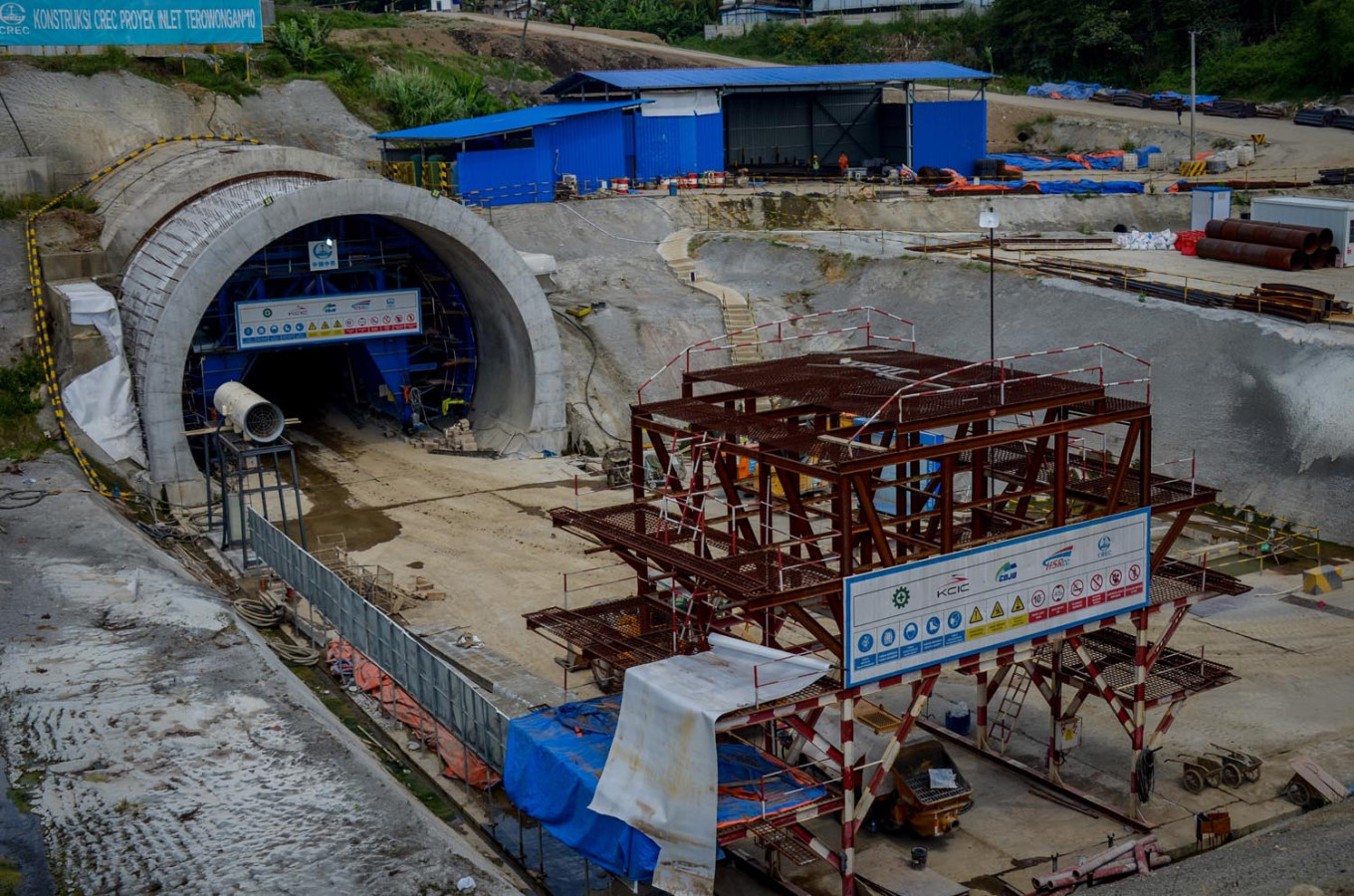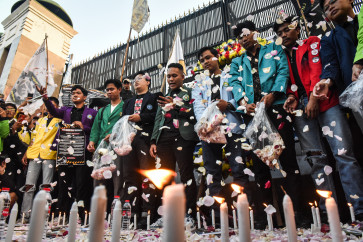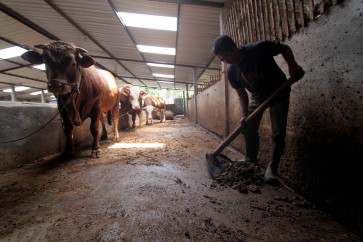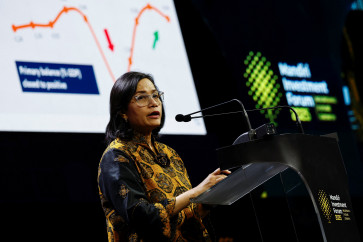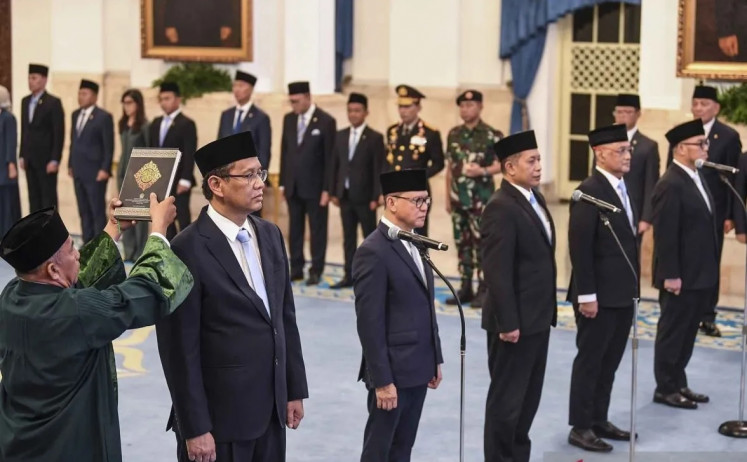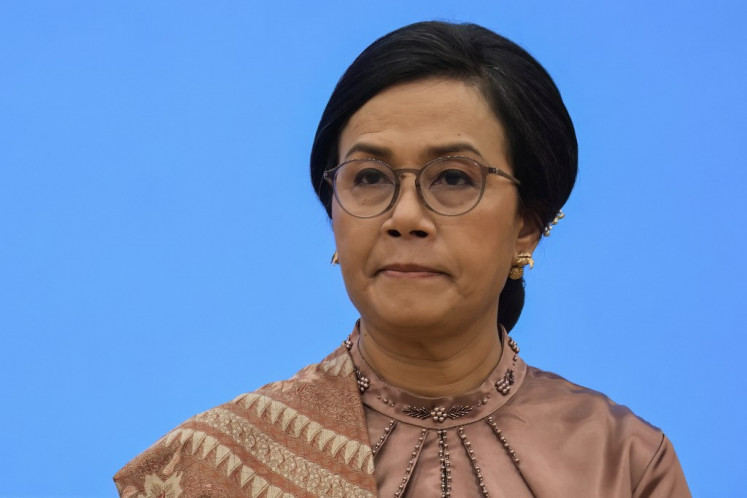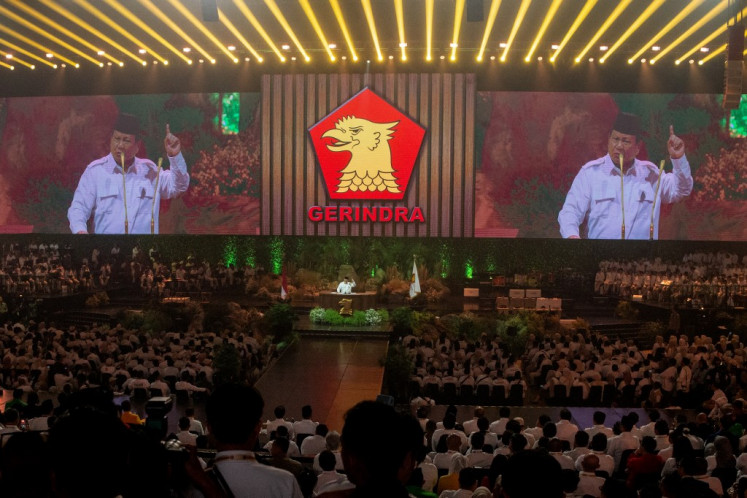Popular Reads
Top Results
Can't find what you're looking for?
View all search resultsPopular Reads
Top Results
Can't find what you're looking for?
View all search resultsHigh-speed train project may take years to become profitable: KCIC
“This is a railway investment and as such, [achieving] the break-even point [BEP] was never going to be easy. Most railway investments come with [a BEP] of more than 20 years,” Dwiyana explained.
Change text size
Gift Premium Articles
to Anyone
T
he business case for the Jakarta-Bandung high-speed rail (HSR) has worsened as a result of the COVID-19 pandemic and the government’s plan to move the nation’s capital to East Kalimantan.
PT Kereta Cepat Indonesia China (KCIC), the consortium responsible for the project, said on Monday that the demand projection – based on a recent third-party review – had fallen to just 31,215 passenger trips per day, just over half of the 61,157 estimated in a 2017 feasibility study.
The consortium has appointed the China Railway Design Corporation (CRDC) and global auditing network KPMG International to review and update the project’s feasibility with new assumptions to account for the change in circumstances over the last five years.
“We assume that [passenger] growth, adjusted for COVID-19, will be very small in the first five years,” KCIC president director Dwiyana Slamet Riyadi told a virtual meeting with House of Representatives lawmakers, adding that the consortium had also accounted for the impacts of the capital city relocation and development project.
Referring to several new assumptions, KCIC also estimated that the payback period would swell to 40 years from the 26 years assumed in the 2017 study, but it also promised to find new revenue streams to shorten this.
“This is a railway investment and as such, [achieving] the break-even point (BEP) was never going to be easy. Most railway investments come with [a BEP] of more than 20 years,” Dwiyana explained.
The worsening economics surrounding the Jakarta-Bandung HSR only add to a list of issues pointing to an increasingly bleak future for the project.
The government announced last year that the project had exceeded its initial budget of US$6.07 billion by $2 billion. This prompted the issuance of a new regulation to allow for government funding and guarantees, which had been initially ruled out.
The government has injected Rp 4.3 trillion ($299 million) from the state budget through state-owned railway company PT KAI, funds that KCIC said it had used for overdue payments. More capital injections are needed to solve the cost overrun, but are pending an audit from the Development Finance Comptroller.
In January, President Joko Widodo announced that the operational date of the Jakarta-Bandung HSR had been pushed back six months to June 2023. KCIC later revealed that the delay was due to the project running into additional technical and geological difficulties.
Meanwhile, KCIC said it had completed 10 of 13 tunnels, and that it planned to complete the remaining three by April.
These three tunnels are considered to be among the most difficult ones in the project and have been delayed for more than half a year.
Other obstacles include the COVID-19 pandemic, with the project reporting almost 500 workers with the disease and another 1,500 in self-isolation.
Syarif Abdullah Alkadrie, the deputy chairman of House Commission V overseeing infrastructure and transportation, questioned the fate of the project in light of the Nusantara capital city (IKN) development project, suggesting that the Jakarta-Bandung HSR could end up with zero passengers.
He pointed to other projects that had met a similar fate due to “misplanning”, like Kertajati International Airport in West Java and the light rapid transit (LRT) in Palembang.
“Which is better, stopping or continuing [the project]? I'm worried that it will create more burdens [on the state budget],” said Syarif, who is from the NasDem faction.
Rail Transportation Director General Zulfikri told the same meeting that the Transportation Ministry would wait until KCIC submitted the updated feasibility study to determine any measures needed to support the project.
“We will look at the assumptions used later, like the cost overrun, development delays and the pandemic. We are waiting and will see. If it is necessary, we will also amend the concession period,” Zulfikri said.
He added that the current concession period was 50 years from the issuance of the operational permit.

